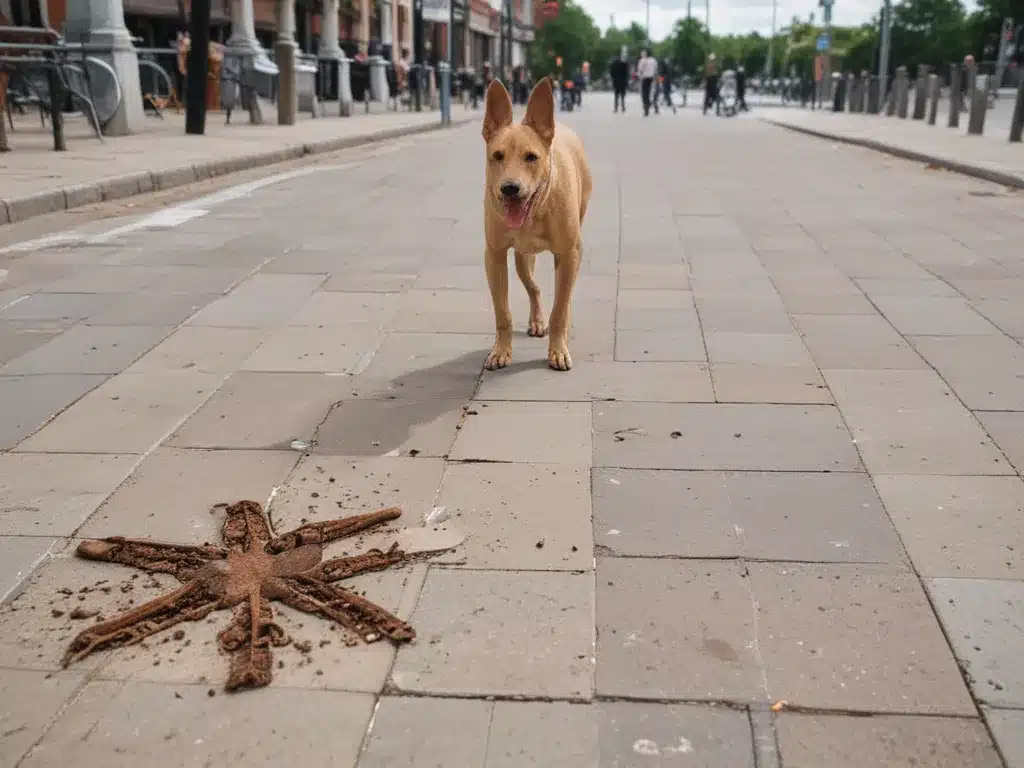Overview of the Issue
Dog faeces left in public places such as parks, sidewalks, and beaches is an unfortunate common occurrence in many communities. This can present a number of potential health hazards. As a dog owner, I aim to be responsible and clean up after my pet, but not all owners are so considerate.
Health Risks of Dog Faeces
Dog faeces contains a number of harmful microorganisms and parasites. Here are some of the main health concerns:
Bacteria
Campylobacteriosis, salmonellosis, and E. coli infection are among the bacterial diseases that can be transmitted through contact with dog faeces. These bacteria can cause gastrointestinal illness in humans. Children playing outside are at particularly high risk.
Parasites
Parasitic worms found in dog faeces can infect humans and cause health problems. Hookworms, roundworms, whipworms, and tapeworms are common parasites spread through faeces.
Viruses
Viruses such as parvovirus, coronavirus, and rotavirus can be present in dog faeces and infect humans under certain conditions.
Overall, exposure to these pathogens found in dog faeces, whether through direct contact or contamination of soil, sand, or water, represents a public health risk. Children, elderly individuals, and those with weakened immune systems are most vulnerable to infection.
How Disease Spreads from Dog Faeces
There are a few primary ways that diseases from dog faeces can spread to humans:
-
Direct contact: Coming into direct physical contact with dog faeces can transmit disease through contamination and ingestion. This is especially risky for young children.
-
Water contamination: Dog faeces left near bodies of water can wash into the water and spread illness if the contaminated water is consumed or used for recreation.
-
Soil contamination: Parasites and bacteria from faeces left in soil and sand can linger for long periods and be picked up by humans through touch or accidental ingestion.
-
Fly transmission: Flies that come into contact with faeces can pick up diseases and then transmit them when they land on human food.
Proper disposal of dog waste prevents these routes of disease transmission.
Responsible Dog Ownership
As a responsible dog owner, I make it a priority to immediately clean up after my dog every time she defecates in public areas. Here are some best practices I follow:
-
I always carry plastic bags when I take my dog out for walks to pick up and contain her faeces.
-
I dispose of the sealed bags promptly in designated garbage cans. Leaving bagged faeces on the ground is also risky.
-
I make sure to wash my hands thoroughly with soap and water after handling faeces.
-
I avoid letting my dog defecate close to playgrounds, beaches, sidewalks, trails, and recreational water sources.
-
I keep my dog up-to-date on fecal examinations, deworming, and vaccines to reduce parasite and disease risk.
-
I encourage other dog owners to be responsible and promote public awareness of this issue in my community.
Through education and considerate ownership habits, we can reduce the health hazards posed by dog faeces in public spaces. It takes commitment, but the benefits for community health make it worthwhile. We all share the environment.
Conclusion
Irresponsible dog ownership leads to faeces being left behind in public areas, and this can spread harmful bacteria, viruses, parasites, and illness to humans. Children are especially vulnerable. As a dog owner, I make cleaning up after my dog a top priority whenever we are out in public. It’s a small inconvenience that helps protect human health. With a little extra care and consideration, we can enjoy our parks, trails, beaches, and sidewalks faeces-free.







